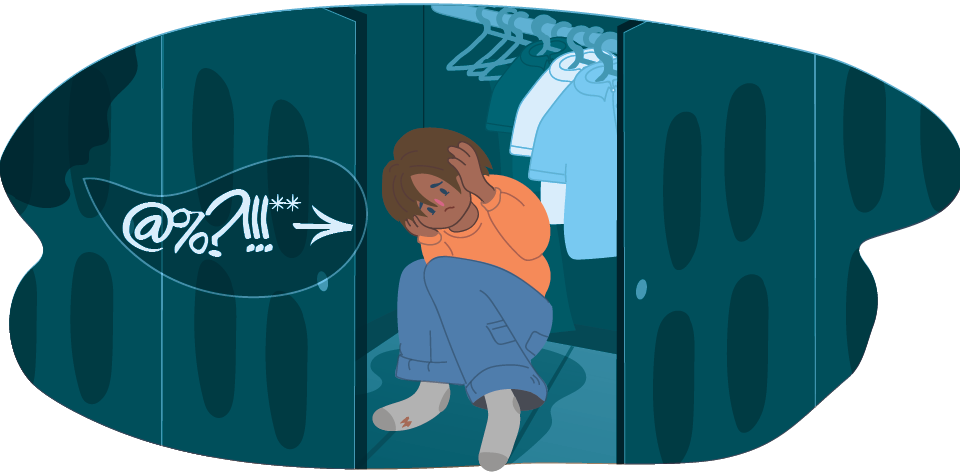Understanding child physical abuse
Learn more about what physical child abuse is, the signs and impacts ...
READ MEWords can harm - emotional abuse can be just as hurtful as physical abuse and the effects can last a lifetime.

Emotional abuse is particularly damaging to a child’s self-esteem and emotional wellbeing.
Typically, repeated incidents of abuse build up over time and cause lasting effects upon a child's development and wellbeing. However a single incident can cause serious harm as well.
Some examples of emotional abuse include:
Continually ignoring or rejecting a child
Physically or socially isolating a child
Forcing a child to do things by scaring them
Exposing a child to domestic violence
Constantly criticising, humiliating or blaming a child
Constantly swearing, yelling or screaming at a child
Making a child feel different from other family members
Telling a child that they’re worthless, unloved or not enough
Withholding love, support, praise or attention from a child
Bullying, teasing, insulting or belittling a child
Having unrealistic expectations or unreasonable demands of a child
Not allowing a child to explore, express themselves, learn or make friends
Treating a child badly because of things they can’t change (eg. disability, gender, sexuality)
Threatening abuse or threats to harm loved ones or pets
Children and young people may experience a range of emotional, psychological and physical problems as a result of being harmed, including:
Unhealthy coping strategies or habits (sucking, biting, rocking, self-harm)
Mental health disorders (anxiety, depression, phobias)
Inability to trust or difficulty forming relationships
Destructive, aggressive or anti-social behaviours
Drug and alcohol use
Developmental delays
Sleep or eating disorders
Difficulty expressing themselves
Learning or speech disorders
High-risk sexual behaviour
Behavioural problems or disorders
Difficulty regulating emotions
Physical disorders or health issues
Suicidal thoughts or attempts
Overly adaptive behaviours (eg. very compliant or defensive)
Low confidence, self-esteem or self-worth
Child protection is everyone’s business! Some adults have a legal obligation to notify authorities (these obligations differ between states and territories).
Encourage the child in your life to contact Kids Helpline if they need some extra support to cope with what has been happening.
You may find talking to somebody outside of the situation helpful. You could try calling Parentline in your state or territory to discuss your concerns.
For some guidance on responding to disclosures of child abuse, see our article on Responding to disclosures of child abuse.
Understanding child physical abuse
Learn more about what physical child abuse is, the signs and impacts ...
READ MEFamilies impacted by domestic violence
Domestic violence can happen in any family. It’s never ok and ...
READ MEUnderstanding child sexual abuse
In this article we’ll explore what child sexual abuse is and ...
READ MEResponding to disclosures of child abuse
When a child discloses abuse it can be hard to know how ...
READ METalking helps! We’re here for you.
No problem is too big or too small.
We're here 24 hours a day, 7 days a week